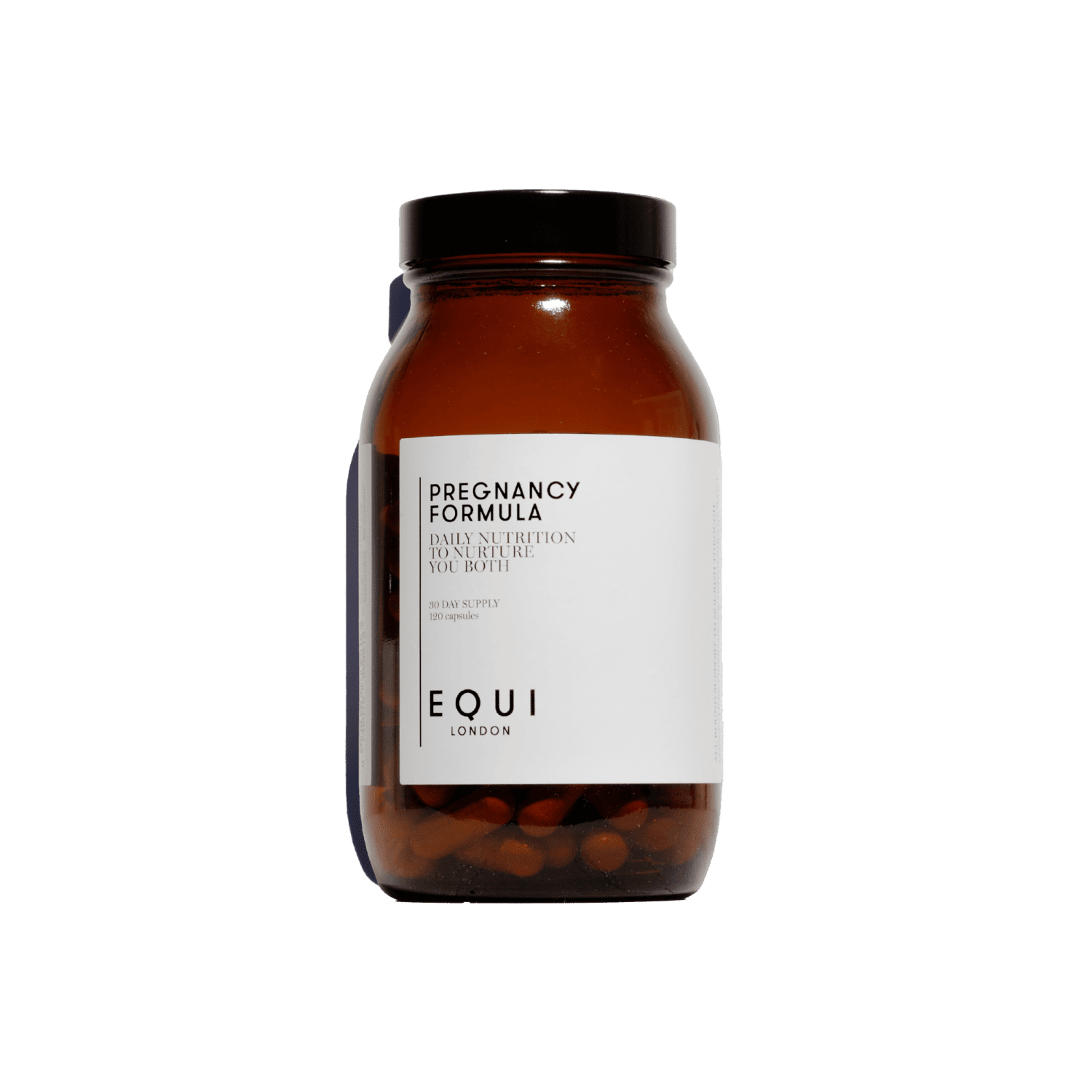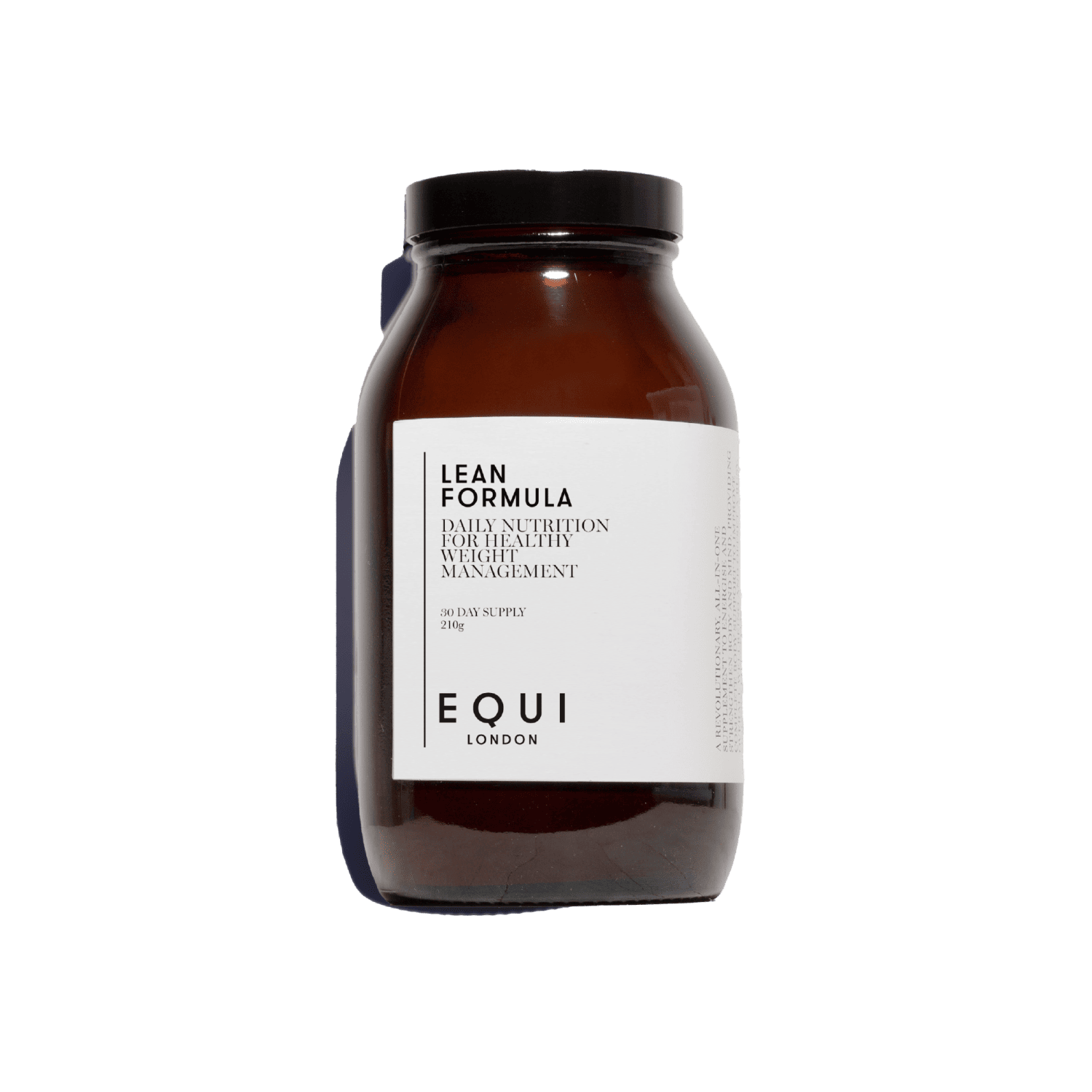The Best Diet For When You’re Tired ALL The Time
Feeling tired all the time is THE most complained about issue in the UK to GPs, but there are a multitude of reasons why you may be struggling with energy. Lack of sleep, poor nutrition, low blood sugar, low iron and low B12 are some of the most common causes in busy women. But what about an issue with your actual production of energy, which takes place within all your body’s cells?
Why is your energy low?
Today we wanted to zoom in on these important processes, and how you can make these critical biochemical reactions more efficient and productive to help you fight fatigue. This also has the added benefit of supporting metabolism and boosting your overall vitality, which is the kind of stuff we all are all after!
How do our cells make energy?
Our 'mitochondria' (pronounced mito-con-dria) are the powerhouses found within each of our cells. Each cell contains thousands of mitochondria, and within these little energy factories, a complex series of reactions take place to create ATP, the energy that fuels our body.
The problem is that when these processes don’t work optimally it can really impact on many our energy but also a great many other healthy body functions. Whether you’re feeling a little bit low on energy, or you’ve suffered with more serious fatigue for a long time, it’s really important to give this area some attention.
How does diet impact our mitochondria?
We often think of carbs being the best fuel for energy production in our body, and though this is the case, actually the right fats and protein can also help to fuel these little organs too, and so it’s important to get all three food groups from healthy sources. Also see the bottom of this article where we discuss ketogenic diets – which have been shown to be effective for mitochondrial health.
As well as this, our mitochondria need an array of micronutrients to stay healthy and function optimally. One of the processes that keep mitochondria working efficiently is a process called mitochondrial autophagy, or ‘mitophagy’. Think of this like a housekeeping process, where unwanted waste is removed and recycled to prevent it getting backed up and causing problems within the cell. This ensures that proper cellular function can take place which is super important. Amazingly, our diet and the way we eat (more below) can have an impact on mitophagy too.

What are the best nutrients for mitochondrial health?
We’ve rounded up some of the most important nutrients for mitochondrial function below – it’s a good idea to get these into the diet regularly.
Omega 3 – Oily fish x3 week (normally the more ‘fishy’ fish such as mackerel, salmon, anchovies and sardines). Try to get wild fish if you can get access to it.
B vitamins – Wholegrains such as organic brown rice, quinoa, oats (choose these over white carbs as much as you can) legumes, eggs, mushrooms, dark green leafy veg, beetroot, cauliflower, oily fish and meat.
Vitamin C - Colourful vegetables of all kinds (aim for 6+ per day) plus fruit (aim for 2/day). All Equi products (apart from our fish oils) contain at least the daily recommended amount of vitamin C.
Iron – Free range red meat (A good goal is to eat grass-fed beef 1/week), dark poultry meat, beetroot, raw cacao, puy lentils, tomato paste, pumpkin seeds, dried apricots and figs (no more than 3 per day owing to sugar), black rice, organic dark green leafy veg. We add top quality, absorbable iron is that is soft on the stomach to Original, Beauty, Lean and Pregnancy Formula.
Magnesium – Organic dark green leafy veg, wholegrains, banana, raw cacao/dark chocolate, Epsom salt baths x2 per week.
Manganese – Oats, pecans, almonds, legumes, pineapple and spinach.
Co-q-10 – Fatty fish, organ meats, pork, beef, chicken, spinach and cauliflower. You can also consider supplementing this at 50mg per day to support mitochondria and energy - this is found in our Original Formula.
Vitamin D – The sunshine vitamin, found in some foods such as oily fish, mushrooms (especially that have been left to sunbathe in natural light), egg yolk. It is impossible to get enough vitamin D through diet alone, so getting into natural light onto your skin is essential in the summer months. In winter, the UK government recommends supplementing with 400iu D3 daily, which is found in all our supplements (Our Pregnancy Formula contains 1000iu per daily dose).
Curcumin – The active compound found in turmeric – eat fresh turmeric root in curries and you can also add powdered to food too. Also consider a bio-available supplement too, such as that found in our Beauty Formula and Glow Edition.
Phospholipids – Chicken liver (1/week is useful, or go for 2/month if you struggle with this, tho pregnancy women are advised to avoid this), black pudding, egg yolk, edamame beans, beef.
Ellagitannins – Found in raspberries, strawberry and especially rich in pomegranate. Our award-winning Beauty Formula contains a lovely hit of pomegranate extract 😋
Phytonutrients – Dark berries, black grapes, pomegranate, raw cacao powder and 70% dark chocolate.

Foods that sap energy
Palm oil/palmitic acid - Foods containing these can negatively impact on mitochondrial function. Avoid grain-fed meat (instead go for grass-fed where possible), margarine, vegan cheeses, and watch out for chocolate!
Trans fats – Deep-fried foods, ready meals, junk food and processed sauces
Toxic burden – Making an effort to reduce environmental toxins from our cosmetics (we will post about this soon!), cleaning products, reducing plastic exposure, as well as choosing organic where possible (especially for the Dirty Dozen).
A note on fasting and the ketogenic diet
The WAY we eat can also impact on the way we produce energy. Fasting and ketogenic diets have been shown in research to help make mitochondria more efficient, and may actually mimic mitophagy.
If you’re a healthy adult without any diagnosed conditions (and not pregnant) then you can consider incorporating some fasting into your diet, but do be sure to check with your doctor before making changes to your diet. We recommend getting some help on this from the 5:2 diet book by Dr Michael Mosely, or researching 16:8 fasting techniques to be sure that you’re doing it safely and effectively.
Research has also shown that a healthy ketogenic diet can help with mitochondrial health too – ‘The Ketogenic Kitchen’ (Domini Kemp Patricia Daily) is a great book to learn more about doing this in a healthy way.
Note – this diet isn’t really for part-timers - if you want to get the most from a ketogenic diet then you really need to commit to it.
We would love to hear from you! Drop us a line, or check out our Instagram or Facebook to see what we are up to and hear about exclusive offers.
Disclaimer: No one diet or supplement regime works for everyone and you should always seek help from a GP and registered health expert before making changes to your diet, or before introducing any supplements. This is especially important when pregnant or if taking any medications.





